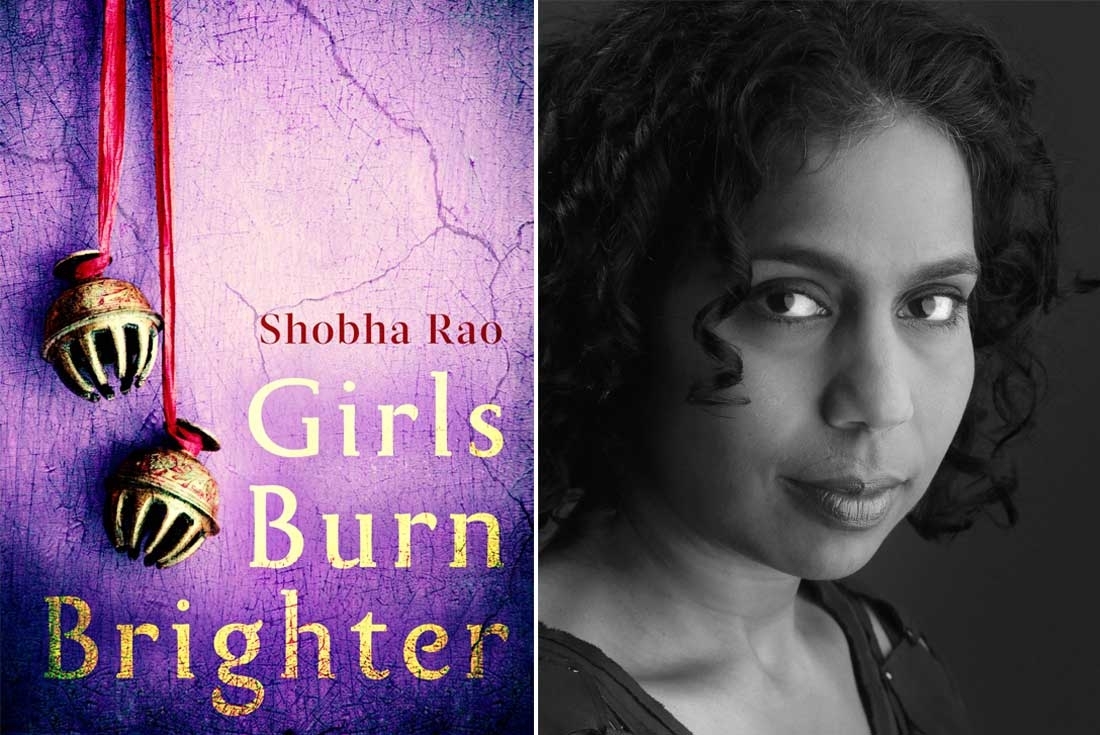

'Girls Burn Brighter is the story of two girls—one who is trafficked from India into the United States, and the other, who sets out to find her. Both main characters— Poornima and Savitha—are impoverished and uneducated, but they are relentless and they are fierce. One of the primary questions I wanted to ask in the novel is: What is a girl worth? Her life. Her body. Her memories, her dreams and desires, her hair, her eyes, her hopes, the fall of her foot, the melancholy in her voice. I want this question to haunt the novel. I want it to haunt the reader. I want to answer it. I want it to be unanswerable.'
We connect with Shobha Rao to learn more about her, the thoughts that shape her and the inspiration behind her very powerful debut novel, Girls Burn Brighter.
When did your romance with writing begin?
Romance is most certainly the right word. Because writing is a love—a tortured one at that. One I’ve known, embraced, fought, alienated, and tried to woo back with promises of love. As for when the romance began, it was with a childhood book called Emma and the Garden Imp. Emma, the hapless heroine, was constantly being seduced into naughtiness by the imp. She prevailed in the book, but the imp prevailed in my heart.
“'I write well when I’m writing fast. And I write fast when the emotion underlying the impulse is strong. All my deliberation is used elsewhere, in learning about the craft, reading philosophy, writing down sentences that I hope will someday be included in larger works.'”
How did you spend your growing up years and how has that shaped the writer you are, today?
The first part of my life was spent in Kanpur, India, and the second part mostly in the state of Indiana, in the U.S. I hardly knew any English when I arrived in America at the age of seven. I doubt I’d have been a writer without this ignorance. After all, what are we when we enter a new country, especial-ly a country whose language we do not speak? We are silent. And it is this silence that deepens our reverence for the world, for others, and in the end, for language.
What inspired your debut novel, Girls Burn Brighter?
I was inspired by two girls who, in November of 1999, were found unconscious on the floor of an apartment in Berkeley, California. They were poisoned by carbon monoxide, and one of them, who was thirteen years old, eventually died. They were both victims of human trafficking, and while in the United States, had been subject to domestic and sexual slavery. They were both from Andhra Pradesh. It was these girls who inspired me, and all the girls who walk amongst us—poor, exploited, abused, enslaved, and unseen.
What kind of research went into the story and how did you find your girls?
Research, for me, is mostly real life. Walking every street looking into the eyes of every passerby. Imagining the story of their lives. Constructing for them entire continents of feeling and purpose. If we can do that with a person whose gaze we’ve met for a second or two, then we have in us the curiosity and the regard to research the rest. All that to say: my characters were inside me. They’d been living there all along.
How easy or difficult and different was the transition from short stories to a full-length novel?
A blank page is always humbling, bewildering, and without mercy. It hardly matters what one is setting out to write. As for the transition from short stories to a novel, the primary difference for me is a matter of endurance. A short story is walking into a house, setting it on fire, and then walking out. A novel is walking into a house, building a fire—matches, kindling, wood—and then keeping it going for a year. Or two. Or ten. Ultimately, they should give off the same thing: heat.
How much do you borrow from your own reality or surroundings when writing your stories?
Some things defy explanation. All of my writing borrows from my reality and my surroundings. None of it does. Both of these statements are true. If I mention the word pink in a particular passage, is it because the sky on the evening I wrote the passage was dusted with pink? Or is it because suddenly, while writing, I thought of the inside of a seashell I’d once picked up as a child? Or is it because pink is the color of flesh, of firangi pani, of the human heart, just before it breaks?
What kind of emotion does writing evoke in you?
Every emotion that exists.
And lastly, how have you evolved as a writer since you first began writing?
My evolution has been like all evolution: mass extinctions, mutations, sudden climactic events, an Ice Age, a Stone Age, and an Age of Enlightenment.
Text Shruti Kapur Malhotra